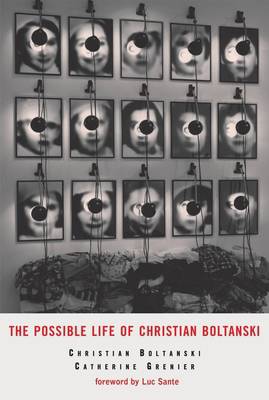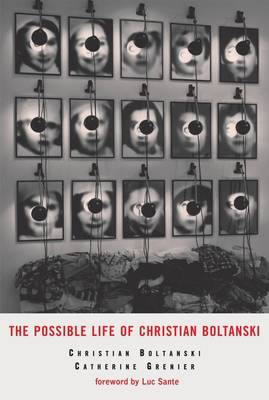
- Afhalen na 1 uur in een winkel met voorraad
- Gratis thuislevering in België vanaf € 30
- Ruim aanbod met 7 miljoen producten
- Afhalen na 1 uur in een winkel met voorraad
- Gratis thuislevering in België vanaf € 30
- Ruim aanbod met 7 miljoen producten
Zoeken
Omschrijving
Christian Boltanski's votive installations, archives and objects, revolving around the fragile polarities of memory and amnesia, identity and anonymity, have made him one of the world's most renowned contemporary artists. And yet, despite the centrality of biography and testimony to his work, Boltanski's own story is little known and has never been fully told. Published on the occasion of the artist's sixty-fifth birthday, The Possible Life of Christian Boltanski, written in the form of a book-length interview (which the artist likens to a psychoanalysis or confession) with the art historian Catherine Grenier, is Boltanski's oral autobiography. In it, he recounts his unusual wartime childhood (my mother hid my father under the floorboards. He stayed there for a year and a half, between two floors in the house. He'd come out from time to time--I'm living proof of that!), his career, friendships and marriage, successes and regrets, his approaches to art and teaching, how he created various installations, his relations with dealers and the public, and other matters that illuminate as never before his complex, enigmatic works. Boltanski is refreshingly phlegmatic about the realities of the world (art and otherwise), and he relates his remarkable stories--some enormously amusing, others tragic--with a matter-of-factness and self-deprecating humor that highlight his capacity for humane responsiveness. As both the self-portrait of a major contemporary artist and a frank, fascinating memoir, this is a document of capital importance.
Specificaties
Betrokkenen
- Auteur(s):
- Uitgeverij:
Inhoud
- Aantal bladzijden:
- 239
- Taal:
- Engels
Eigenschappen
- Productcode (EAN):
- 9780878467464
- Verschijningsdatum:
- 30/09/2009
- Uitvoering:
- Hardcover
- Formaat:
- Genaaid
- Afmetingen:
- 147 mm x 208 mm
- Gewicht:
- 439 g

Alleen bij Standaard Boekhandel
+ 97 punten op je klantenkaart van Standaard Boekhandel
Beoordelingen
We publiceren alleen reviews die voldoen aan de voorwaarden voor reviews. Bekijk onze voorwaarden voor reviews.








